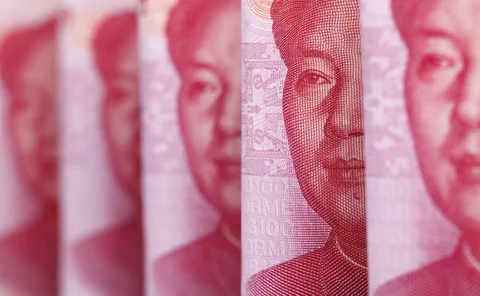Feature
The PBoC’s efforts to solve the ‘impossible trinity’
Chinese central bank intervenes to manage offshore renminbi rate; uses swaps, rather than selling reserves in latest currency interventions
Beyond payments: central bank digital currency
The issuance of central bank digital currencies, such as Sweden’s proposed e-krona, could facilitate monetary policy beyond the zero lower bound
The EU tries to rethink its faltering AML regime
The European Union plans to centralise its anti-money laundering efforts following a series of scandals this year. Dan Hardie looks at the options available and the multitude of challenges that remain
Agent-based models: a new frontier for macroeconomics?
Agent-based modelling is opening up new possibilities for economics, but the discipline is still struggling to move from the sidelines to the mainstream
What next for the BoJ’s unprecedented ETF experiment?
No other central bank has attempted such purchases, and exiting the policy may prove extremely challenging, says Sayuri Shirai
Central Banking FinTech RegTech Global Awards 2018
Winners In Focus
The Bank of England’s missing records
Central banks need to implement robust archiving frameworks, should they want to maintain public trust and learn from the lessons of the past, writes former Bank of England official historian Forrest Capie
The battle for cyber resilience
The cyber attack on Bangladesh Bank prompted central banks around the world to change their approach and refocus on contingency planning, but are they ready now?
The perilous road to normality
Many central banks are starting to tighten policy, but their room for error is limited and their final destination unclear. What more can they do?
Data handling – A rethink
Official institutions are maturing as big data users but there is plenty more work to be done.
Big data in central banks: 2018 survey results
As work in big data enters the mainstream for central banks, its policymaking and supervisory influence is expanding, prompting significant investment in new technologies.
Capitalising on regtech
Regulatory technology could prove effective in improving data reporting and supervisory monitoring, but central banks have a long way to go to making this a reality, writes Joel Clark.
A real-time payments revolution in Asia
Asian central banks have encouraged the development of instant payment systems to defend monetary policy transmission and counter cryptocurrency usage
Is the pursuit of a common accounting standard for monetary gold a fool’s errand?
More consistent accounting for monetary gold could address transparency concerns and help smaller emerging economies to achieve greater independence by clarifying treasury transfers
Alternatives to Japan’s 2% flexible inflation target
The Bank of Japan may review its policy framework, given its five-year failure to hit a 2% flexible inflation target
Have central banks created a ‘debt trap’? No, but ...
Tougher regulation has helped ensure extraordinary monetary policy has not caused a dangerous rise in private debt
The toxicology of post-crisis shadow banking
Mark Carney tempted fate in 2017 when he declared the most toxic forms of shadow banking “no longer represent a global stability risk”. Did he speak too soon?
Artificial intelligence: The future of regulation?
The raft of new rules imposed on regulated financial institutions in the aftermath of the global financial crisis has a huge compliance cost. Could artificial intelligence offer efficiency gains?
The IFF China Report 2018: The Bay Area Development
The Guangdong–Hong Kong–Macao Great Bay Area represents an effort to co-ordinate development to create globally competitive city clusters at the start of the Maritime Silk Road in southern China. These efforts are focussed in particular on innovation,…
The IFF China Report 2018: Chinese financial system reform
China is focusing greater effort in tackling the build-up of risks in its banking and financial system, while also seeking to ensure credit is more effectively distributed in the real economy. At the same time it is has embraced fintech but policymakers…
Fintech in the ‘new era’ – Sustainable and sound development
Li Dongrong, president of the National Internet Finance Association of China and former deputy governor of the People’s Bank of China, discusses the growing importance of fintech and how innovation must be married to self-discipline for China to make a…
China’s macroeconomy in the ‘new era’ of politics and power
Lou Jiwei, president of the National Council for Social Security Fund and former minister of finance of China, explores the three key aspects of China’s macroeconomic situation in the ‘new era’ of Chinese politics and power
The Bank of Italy’s approach to risk-based budgeting
The financial crisis blurred the lines between Anglo-Saxon and continental European central bank models, presenting challenges when treating both the sources of risk and risk-bearing capacity using financial and accounting budgeting techniques
The IFF China Report 2018
Insight and opinion from China’s top leaders, policymakers and financiers























